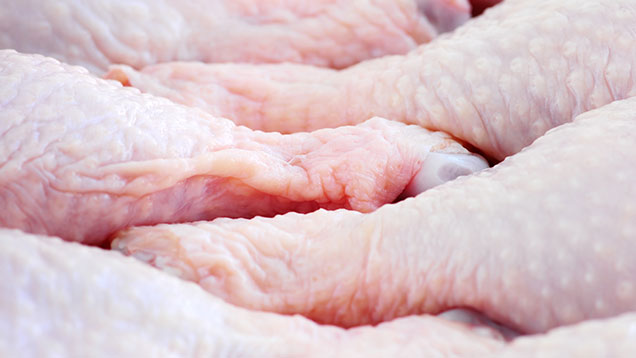Spent hen price under pressure
 © Rex Features
© Rex Features Spent hen values have taken a hit as a result of the continuing fallout from the outbreak of highly pathogenic avian influenza last November.
Processors say that Benin, which they describe as the “gateway” to west Africa, has stopped taking UK product since H5N8 was discovered on a duck breeding farm in East Yorkshire.
While the country has not placed an official ban on British poultrymeat, traders are still refusing to accept spent hen and breeder legs, which in turn has blocked access to the all-important Nigerian market.
See also: Bird flu restrictions lifted in East Yorkshire
Mike Feeley of Bradford-based HCF – one of the UK’s main processors for depleted layers and breeders – said the blockage was causing real problems, with few alternative outlets and legs having to go into cold store.
“The legs are pretty much half the bird, so rather than paying the farmer for them, we are effectively paying the store keeper,” he said. The result was that, instead of 30p a bird, he was now only able to pay 10-15p a bird.
“It is frustrating, as ours was just an isolated outbreak of bird flu, way back in November. We have not had the multiple outbreaks that they have had in Holland and Germany, yet we are being treated the same.”
Omead Serati of Noble Foods – which has the UK’s largest spent hen processing plant at Gainsborough, Lincolnshire – said he was having to rent additional cold storage to deal with the surplus of legs.
As well as Benin, other markets were also taking smaller volumes, he added, while sales of wings and feet to Hong Kong, while not directly affected by the AI issues, had started to dip.
The problem was expected to continue for the next three months, until the UK regains its AI-free status, though Noble was holding prices for spent hens at 30p a bird for the time being, to see how the issue progressed.
A year ago, spent hens were worth 50p each, but fell to 30p in mid-2014, due to falling oil prices, a consequent collapse in the Nigerian economy and the stronger pound.
